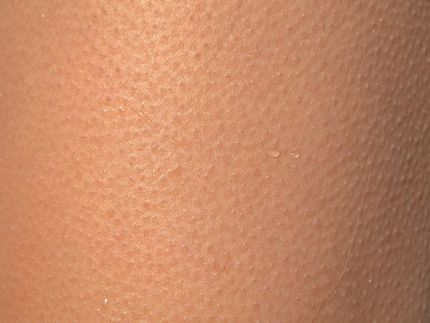More than skin deep
Advertisement
Most products on the market today that are used to treat skin problems target the effects of the disease or wound such as inflammation, which can prolong the healing process and result in scarring. However, LSU Assistant Professor Wei Xu and collaborators at Northwestern University discovered a new way to prevent inflammation and to speed up the skin's healing process. After five years of research, they identified the gene regulation pathway, which involves the body's sodium sensor called Nax (scn7a) that triggers inflammation. They found a way to block it using a nanoparticle-carried small interference RNA, which enables the skin to heal faster.
"This is a really novel pathway we identified. Nobody has ever tried to develop a product that gets at this pathway before," said Wei Xu, assistant professor at the LSU AgCenter and the School of Renewable Natural Resources.
Xu and his colleagues developed a nanoparticle that delivers the RNA that inhibits Nax preventing inflammation. The nanoparticle can be applied to the skin in a cream or lotion.
"I think this is going to be very promising in skin disease treatments," Xu said. This discovery was built upon Xu's post-doctoral research adviser, Dr. Thomas Mustoe's work that showed areas of skin with high hydration heal faster. Combined with the fact that human skin holds more than 100 times as much sodium than most other ions, led the researchers to believe that the body's sodium regulators were key components. One sodium channel, Nax, is particularly sensitive to the body's changes in salt concentration. In previous studies, Nax has been shown to also regulate sodium levels in the central nervous system.
Xu applied the DNA microarray technique to screen more than 100,000 genes in the human genome to find the exact gene regulation pathway. "If we target the very beginning of the pathway, we can control the expression levels of the inflammation factors," he said.
Original publication
Xu, Wei and Hong, Seok Jong and Zhong, Aimei and Xie, Ping and Jia, Shengxian and Xie, Zhong and Zeitchek, Michael and Niknam-Bienia, Solmaz and Zhao, Jingling and Porterfield, D. Marshall and Surmeier, D. James and Leung, Kai P. and Galiano, Robert D. and Mustoe, Thomas A.; "Sodium channel Nax is a regulator in epithelial sodium homeostasis"; Science Translational Medicine; 2015



















































